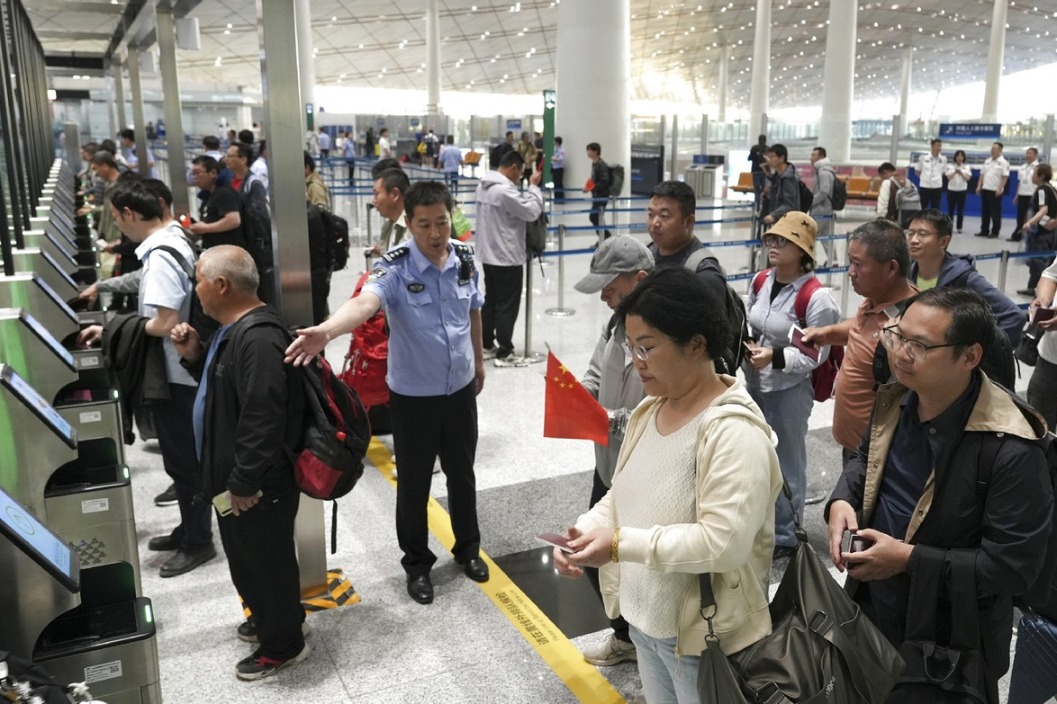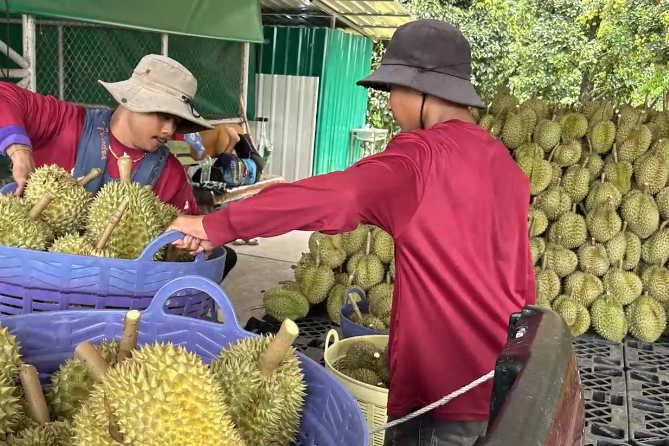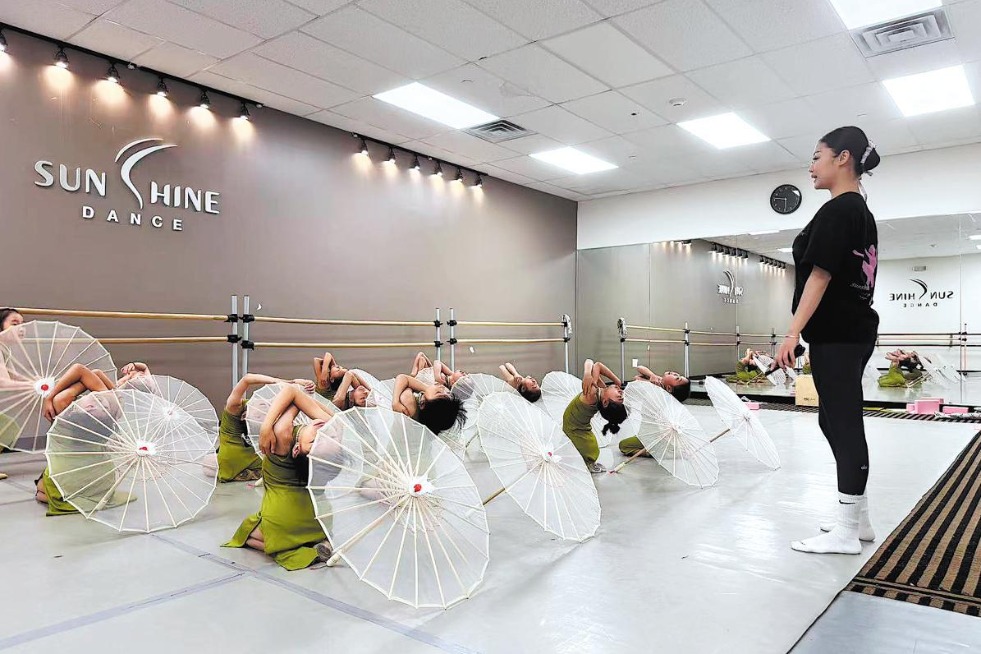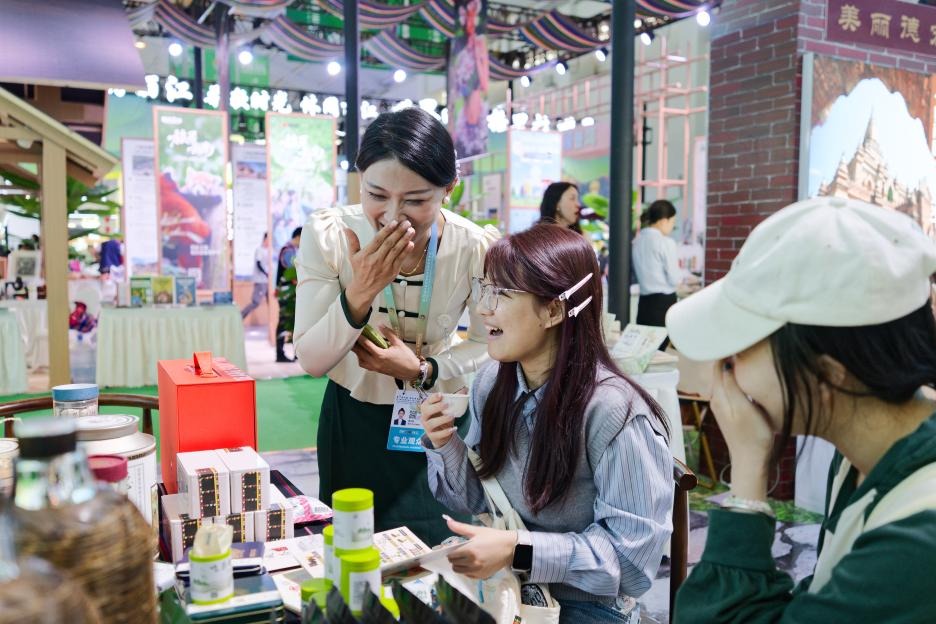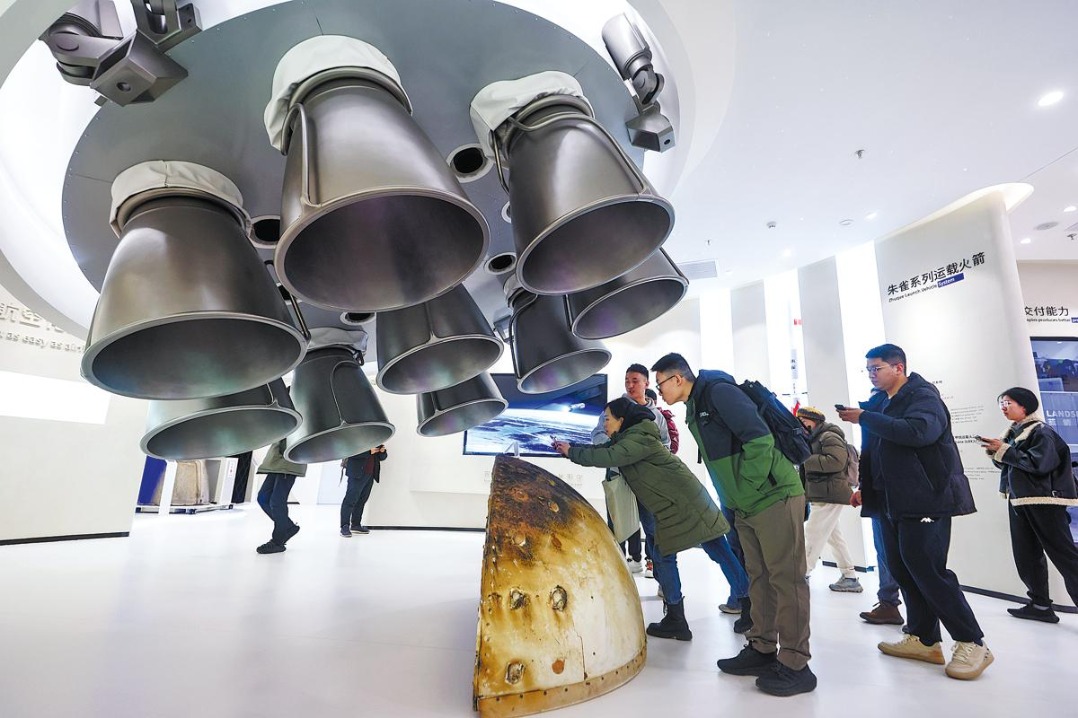Delegates push to enhance global vocational education
By Zhao Yimeng in Beijing and Yang Cheng in Tianjin | China Daily | Updated: 2024-11-22 09:09

China will advance vocational education through high-quality reform and the integration of industry and education, Education Minister Huai Jinpeng said during the 2024 World Vocational and Technical Education Development Conference in Tianjin on Thursday.
Vocational education should be "inclusive, industry-oriented, innovative, intelligent and international," Huai said during his speech at the conference.
"China invites the world to share their results of six major international public initiatives in vocational education, including platforms for cooperation, awards, and exhibitions, to inject new momentum into global vocational education collaboration," he said.
Co-hosted by the ministry, China's National Commission for UNESCO and the Tianjin government, the conference runs from Wednesday to Friday. More than 1,200 delegates are attending, including 600 hailing from more than 100 countries and regions.
Simona-Mirela Miculescu, president of UNESCO's 42nd General Conference, delivered a video message at the opening ceremony, emphasizing vocational education's role as a catalyst for addressing global challenges.
"Technical knowledge and professional proficiency are the linchpins of a brighter tomorrow … We need, more than ever, skillful technicians to support our societies in facing challenges, building resilience and thriving," she said as she highlighted the event's initiatives, including the launch of the World Technical and Vocational Education and Training League and the World TVET Prize.
Muferihat Kamil, Ethiopia's minister of labor and skills, praised China's Luban Workshop initiative, which has provided advanced vocational training for Ethiopian youth since 2021.
"Through this collaboration, thousands of young Ethiopians have gained access to world-class technical and vocational training, equipping them with the knowledge and competencies required to thrive in today's rapidly evolving global landscape," Kamil said, adding that the two countries share a commitment to enhancing innovation and developing human capital.
Grahame Morton, New Zealand's ambassador to China, shared the country's parallel reforms aimed at fostering closer ties between industry and education.
"There is a lot we can learn from each other," he said, underscoring the long-standing educational partnership between the two nations.
During the conference, ministers from 32 countries adopted the Tianjin Consensus on World Technical and Vocational Education and Training Development, which outlines a shared vision for advancing vocational education globally.
Under the theme "Innovation Empowers the Future, Skills Enlighten New Life", parallel sessions of the conference discussed topics such as the high-quality integration of industry and education, global strategies for cultivating skilled talent and the development of lifelong learning systems.
Exhibitions were held to show vocational education's contributions to socioeconomic development, while the Vocational College Skills Competition spotlighted students' achievements, the ministry said.
Several key publications released at the closing ceremony included the inaugural World Vocational and Technical Education journal and the Report on the Development of Vocational Education in China.





